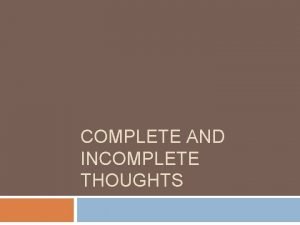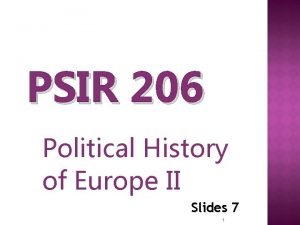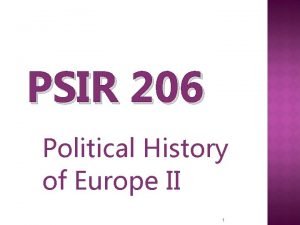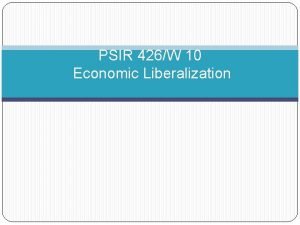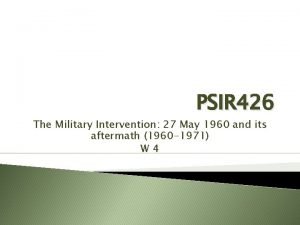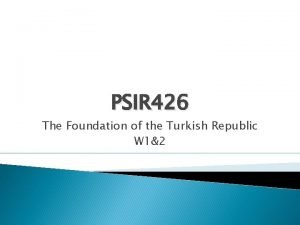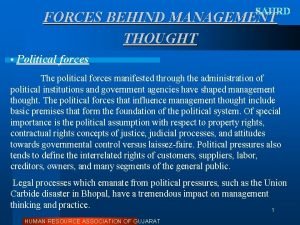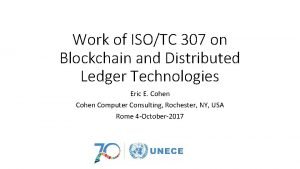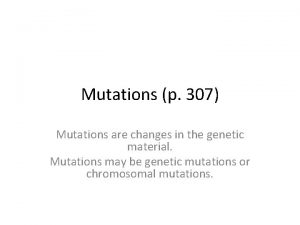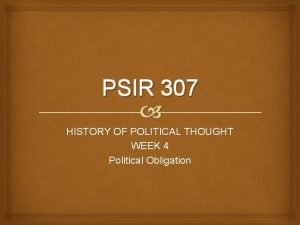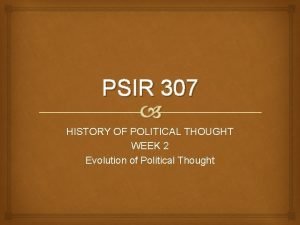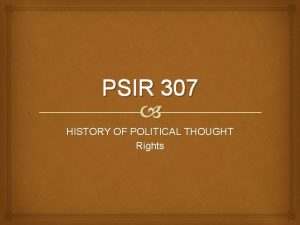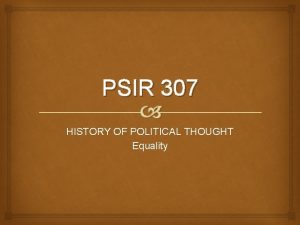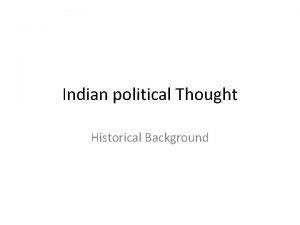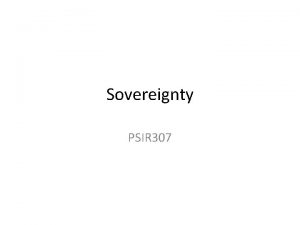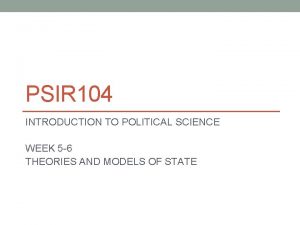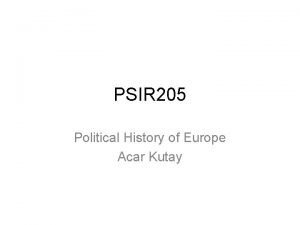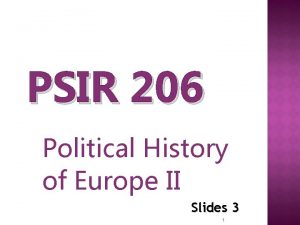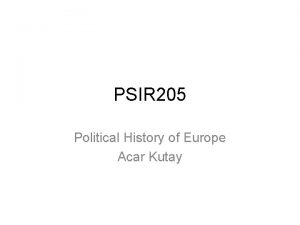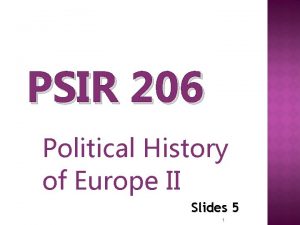PSIR 307 HISTORY OF POLITICAL THOUGHT WEEK 5

















- Slides: 17

PSIR 307 HISTORY OF POLITICAL THOUGHT WEEK 5 Liberty

Plan What is liberty and freedom? What are the differences between ‘negative’ and ‘positive’ liberties? What is the difference between ‘abstract’ and ‘concrete’ freedoms? Is liberty a natural right? What is moral and political freedom conceptualized by Rousseau?

LIBERTY Liberty or Freedom is an ‘essentially contested’ term. Liberty is a value-laden term This is best illustrated with an example


Cartoon? Steve Bell from the Guardian on June 24 2009 Painting origin (1701) of Louis XIV of France (The Sun King) by French baroque painter Hyacinthe Rigaud. The king said : “L'etat, c'est moi” Steve Bell ridicules Sarkozy by making him say in the cartoon: "La liberté, c'est moi"

France and the Burka In June 2009 the former French president Nikolas Sarkozy told a joint session of the two houses of parliament in Versailles supported the French politicians that want to set up a parliamentary commission to study the banning of the burka in France.

France and the Burka "The burka is not a religious problem, it's a question of liberty and women's dignity. It's not a religious symbol, but a sign of subservience and debasement. I want to say solemnly, the burka is not welcome in France. In our country, we can't accept women prisoners behind a screen, cut off from all social life, deprived of all identity. That is not our idea of freedom. ” (Sarkozy 2009)

Traditions of Thought on Liberty Liberal tradition of thought on Liberty or freedom ‘belongs to the individual and consists in the absence of constrains on , or interference with their actions imposed either by the state of by other private individuals’ (Jones 2002, p. 61) Dates back to John Locke’s political theory

Traditions of Thought on Liberty Idealist tradition of thought on Liberty or freedom ‘is bound up with the internal forces that govern the way in which a person acts… thus consists , above all, in the individual’s rational selfdirection –his capacity for acting to his ‘true’ rational desires and beliefs rather than irrational impulses’ (Jones 2002, p. 61) This dates back to the continental tradition of thought and especially to political theory of Jean-Jacques Rousseau.

Traditions of Thought on Liberty Liberal tradition of thought on liberty is said to have a ‘negative liberty’ formulation where it aims to have a ‘freedom from’ something, or an absence of constraints on the individual. i. e. Freedom from harm, freedom from violence, freedom from coercion

Traditions of Thought on Liberty Idealist tradition of thought on liberty is said to have a ‘positive liberty’ formulation where it aims to allow the individual to pursue certain goals or exercise capabilities. i. e. Freedom for independence, freedom for self-determination, freedom for selfgovernance

Accounts of Negative Liberty in History of Political Thought John Locke John Stuart Mill Herbert Spencer David Ricardo

Locke and Liberty A moral right which it is the duty of government to protect Two types of liberty: Natural Liberty which man enjoys in the state of nature before the formation of political or civil society Civil Liberty which man ought to enjoy in political and civil society under the protection of civil government

Locke and Liberty under the State of Nature Locke believed that in state of nature (before civil society) each individual had an inviolable natural right to life, liberty and property. Right to life: right to be free from violent death Right to liberty: right to be free from arbitrary restrictions on an individual Right to property: right to be free from theft of an individuals personal possessions.

Is liberty a natural right? “The Natural Liberty of Man is to be free from any Superior Power on Earth, and not to be under the Will or Legislative authority of Man, but to have only the Law of Nature for his Rule. The Liberty of Man , in Society, is to be under no other Legislative Power but that established, by consent, in the Commonwealth, nor under the Domain of and Will, Restraint of any Law, but what the Legislative shall enact, according to the Trust put in it” (Locke 1988, p. 283).

Hobbes and Liberty in the State of Nature An absence of obligation in the state of nature The right to do what the law does not forbid in civil society

Class discussion Is it feasible for individuals to have any rights in the ‘state of nature’? If so, what are these rights?
